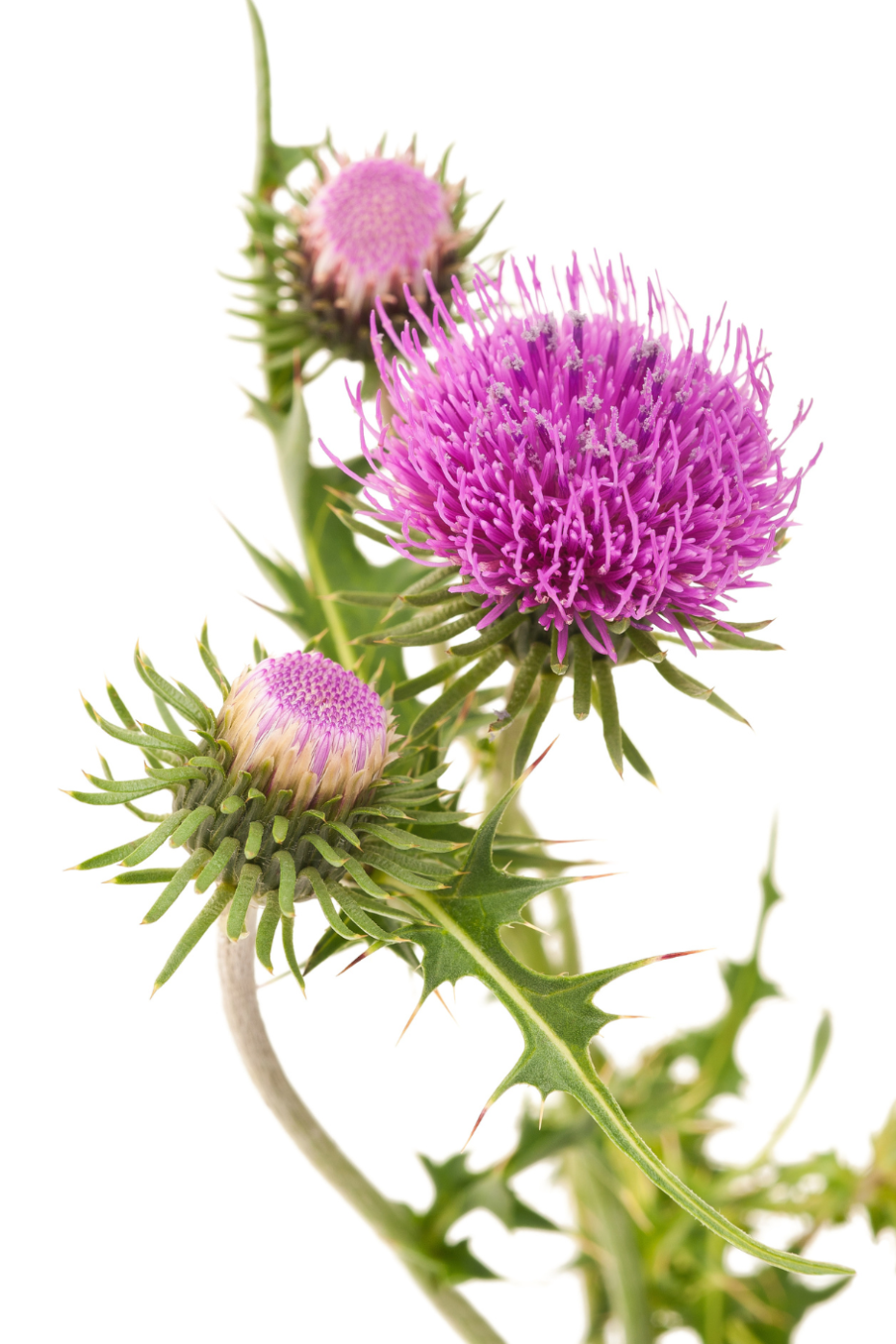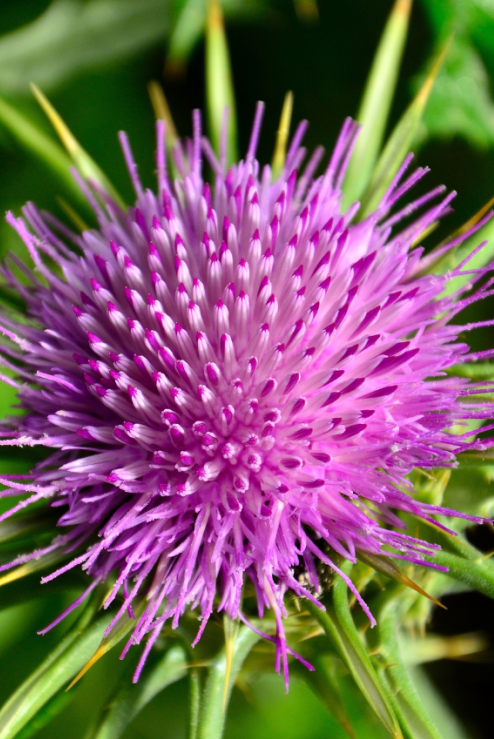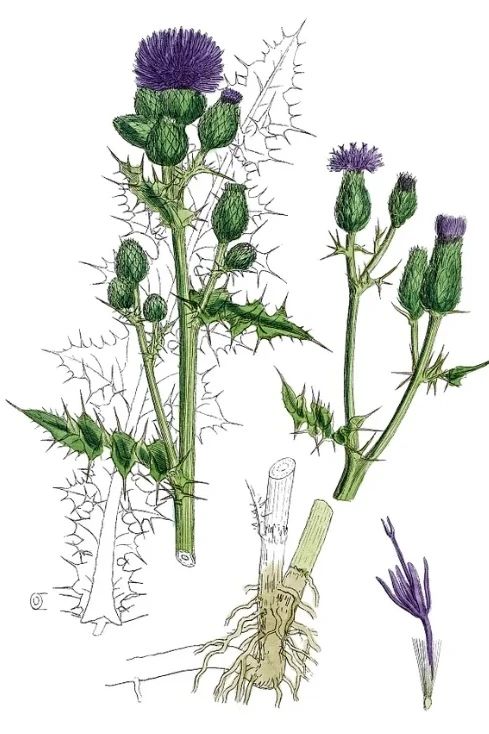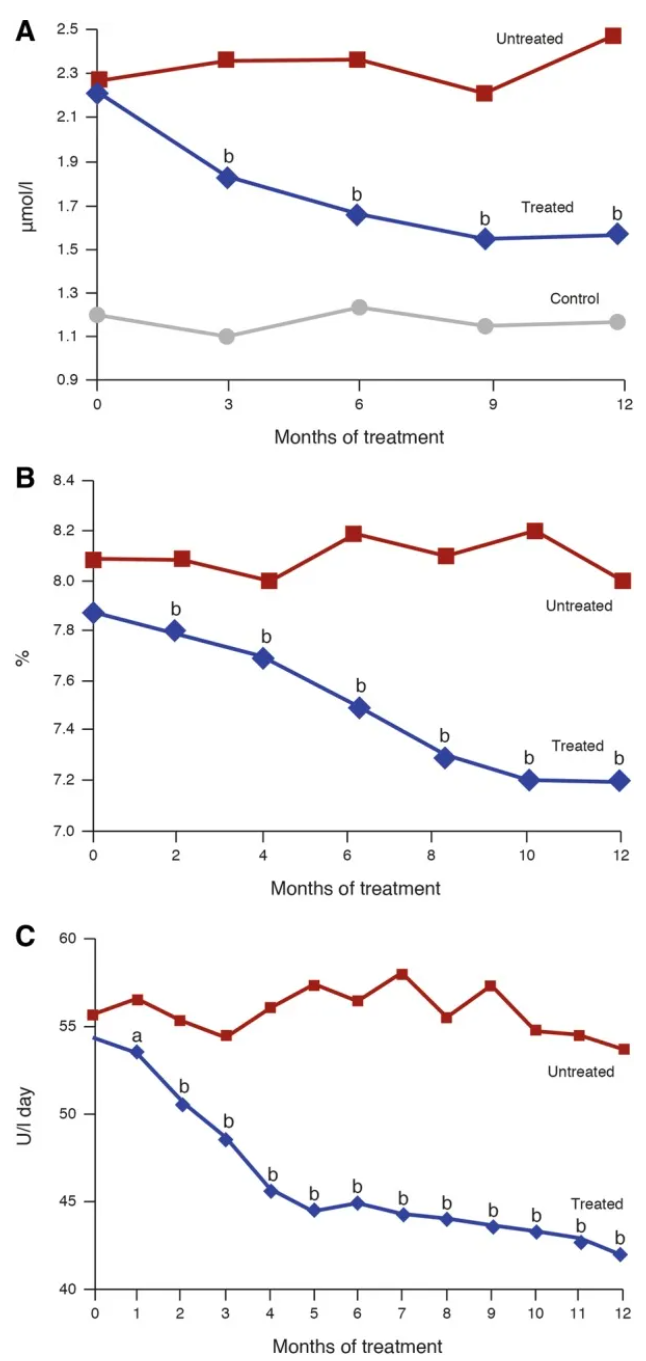close
Choose Your Site
Global
Social Media
Views: 74 Author: Site Editor Publish Time: 2024-05-13 Origin: Site






Milk thistle
Silybum marianum (L.) Gaertn

Milk thistle is also known as "milk thistle."
The name comes from the fact that
From the story of the Virgin Mary hiding under the prickly leaves of the milk thistle
While breastfeeding the baby Jesus.

The whole herb contains flavonoids and fumaric acid, and the seeds contain silybinin A and B (Silydianin), silydianin, silychristin, etc., which are collectively known as silymarin.
Silymarin consists of 65% to 80% of a complex of flavonoid lignans: silybin A, silybin B, isosilybin A, isosilybin B, silychristin, isosilychristin, silybinin, and the flavonoid
The remainder consists of fatty acids, betaine, apigenin, silymarinol, proteins, fixed oils and polyphenolic compounds.

Silymarin is a relatively comprehensive liver protection ingredient
Silymarin, induces the SIRT1/AMPK pathway in high-fat chow-fed mice and palmitate-treated HepG2 cells.
Silymarin, activates FXR signaling or AMPK phosphorylation to regulate lipid metabolism in high-fat feed-fed rodents.
Silymarin, inhibits NLRP3 signaling and attenuates inflammatory effects.
Silymarin, an antioxidant, increases NRF2 translocation in the liver of methionine and choline deficient feed fed mice.
In layman's terms, it regulates liver cell death, regulates lipid cell metabolism, fights liver inflammation, fights oxidative stress in the liver location, and also regulates the microecology of the entire liver.

Silymarin is a key compound in silymarin that has powerful antioxidant properties. It fights oxidative stress by neutralizing harmful free radicals in the body. This action not only supports internal health, but also benefits the skin. By fighting oxidative damage, silymarin prevents premature skin aging. In addition, its antioxidant action protects against UV radiation and environmental pollutants, promoting overall skin health.

Caption:The blue curves are representative of changes in alcoholic liver disease and diabetes parameters in diabetic and alcoholic liver disease patients taking silymarin, and the results indicate that silymarin is effective in neutralizing excess superoxide and reducing systemic symptoms of inflammation (C-peptide levels). In addition to reducing membrane peroxidation, silymarin significantly reduced glycosylated hemoglobin levels and insulin requirements.

Silymarin has been included by the FDA (U.S. Food and Drug Administration) as a nutritional supplement and as a treatment for ingested liver toxicity. Silymarin is currently used in a wide range of pharmaceutical and health food products.

Caption: Skincare application. The brand claims that the new 3.0 series with "Peptide A booster - Silymarin" can target the core anti-aging pathway TGF-β and promote collagen production in the skin.
Silymarin is generally considered safe for most people, but as with any supplement, it is not without potential side effects and interactions.
Digestive disturbances, including nausea, diarrhea, and stomach upset, are among the most common side effects.
Some people may experience headaches or skin reactions such as itching or rashes. In rare cases, silymarin may cause more severe allergic reactions.
Silymarin may interfere with the metabolism of several medications and affect their efficacy. This is primarily due to its effect on liver enzymes that play a role in drug metabolism.
It may affect medications such as antipsychotics, antihistamines, and drugs used to treat high cholesterol.
There are also potential interactions with diabetes medications. Silymarin lowers blood sugar, so combining it with diabetes medications may cause hypoglycemia (low blood sugar).
If you are taking any medications, especially those processed by the liver, it is important to consult a healthcare professional before using silymarin.
Pregnant or breastfeeding women should be cautious, as there is limited research on the effects of silymarin in these situations.
Individuals with a history of hormone-sensitizing disorders (such as certain types of breast cancer) may want to avoid silymarin because it can mimic the effects of estrogen.
People who are allergic to plants in the same family as silymarin (e.g., ragweed, marigolds, and daisies) may experience allergic reactions.
Anyone planning surgery should avoid silymarin because it may interfere with blood sugar control during and after surgery.
